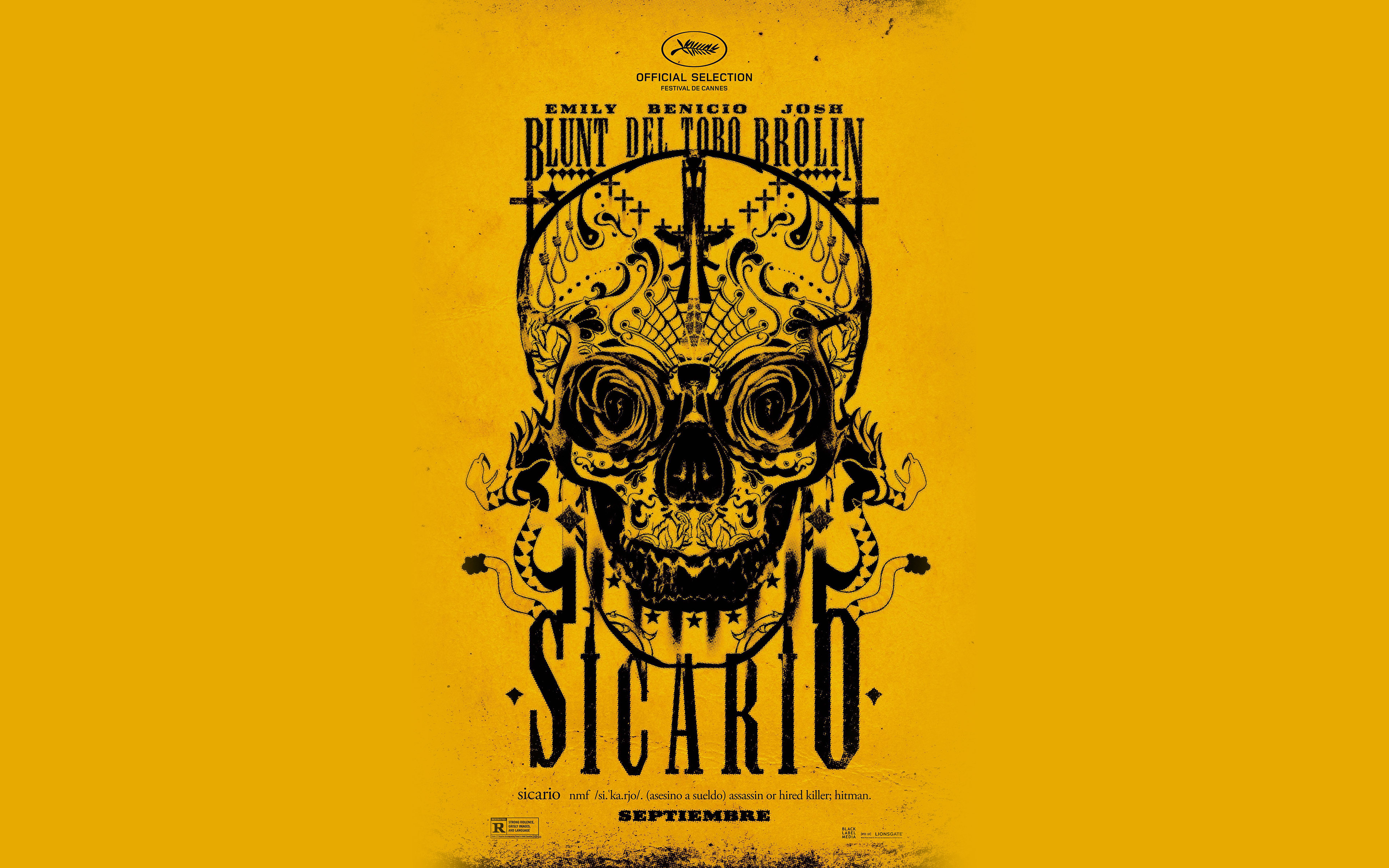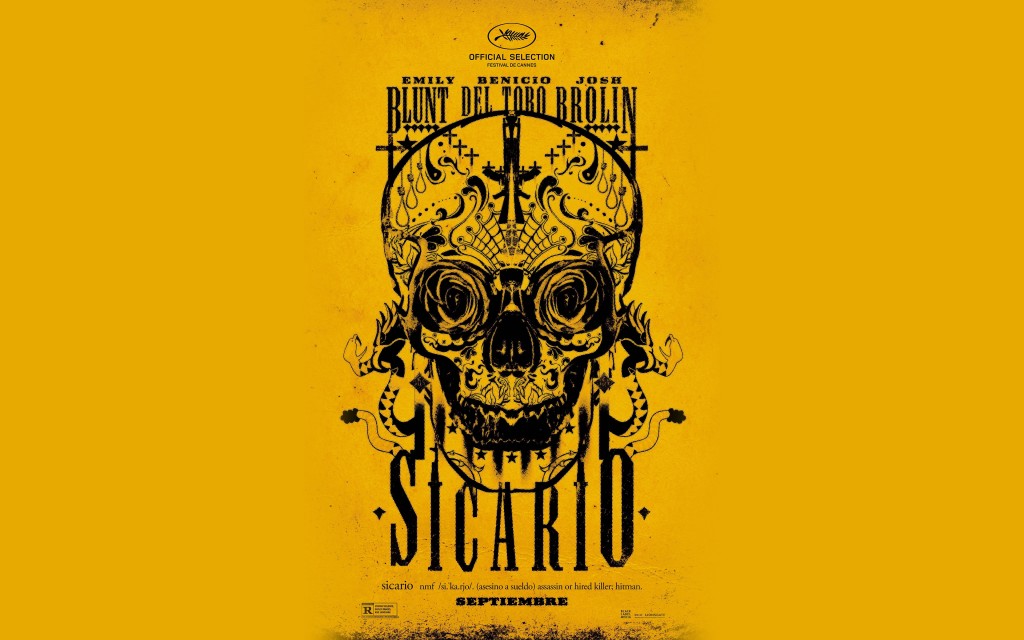By Mitch Huttema (The Cascade) – Email
Sicario: si’ ka.rjo — A spanish word for hitman or assassin, and the latest film from Denis Villeneuve.
In the past several years, we have seen an increase in screen time for narcotic-centric media; examples include Breaking Bad, Narcos, and the Wire. Along that same vein comes the latest film from Denis Villeneuve, Sicario. This film tells the story of FBI agent Kate Macer (Emily Blunt) as she teams up with government official, Matt Graver (Josh Brolin), and the secretive Alejandro (Benicio Del Toro) to fight the drug trade from Mexico firsthand.
One of the industry’s most prodigious directors of photography, Roger Deakins, helped bring Sicario from the mind of Villeneuve to the screen. Following his trademark style, the framing of Sicario is handled with precise intention to show, or hide, from the viewer elements of the scene that elaborate on the dialogue and meaning of the scene at hand. This meticulous control creates the level of cinema that every filmmaker strives for; layering of visual, auditory, and psychological attributes that work together to define and set apart the medium of film. Visually, Sicario echoes No Country for Old Men and Fargo: the same wide angle shots of the landscape and a similar muted colour palate are employed. Colour in this film is reserved for moments of tension or action, and is otherwise beige or washed out to match the dry, barren setting of the film along the Mexican border.
While colour was reserved for the more exciting sections of the film, the soundtrack doesn’t necessarily follow suit. Some of the most tense and unbearably raw scenes of the film were devoid of any music, and taut with the silence. Supposedly, Villeneuve edits the first drafts of his films without any soundtrack — this is clear even in the finished cut of the film as there is a clear visual and psychological power present in the most intense sequences. There are times when every member of the audience falls prey to the old clichés of sitting on the edge of their seat, forgetting to breathe, and unconsciously chewing on whatever they happen to put in their mouths.
This is not to say that this film is unnervingly silent, or that every tense moment is silent. In fact, the soundtrack for this film is masterful, and borderline experimental at points. At times, the soundtrack ventures into the same territory as There Will Be Blood, with drumbeats that start to ramp up your heart rate, and audio that less resembles music and moreso sound effects.
One of the essential themes of this film is related closely to the protagonist, but is at the same time also very detached from her. This film is not feminist, but it does make a feminist statement. A film about war, drugs, and power, Sicario doesn’t focus on the importance of the protagonist being female, yet with the way the story unfolds, this becomes an essential piece of the puzzle. Casting light on the rule bending of the American military (and by extension, the American government) in a bid for control, this film manages to make a point of how much of a man’s world that politics and the military really are. The protagonist acts as a surrogate for the audience in the film, and thus each experience the main character goes through has an increasingly powerful effect on the audience as the film progresses.
It is incredibly difficult to say much about the theme or plot of this movie without spoiling the experience of seeing the film unfurl. Suffice it to say, this film is well worth watching, and offers a perspective not often explored on war, the drug trade, and the human struggle for control.



